Μπρένταν Μπήαν
ΕΝΑΣ ΟΜΗΡΟΣ
The Hostage - An Giall
Μετάφραση: Βασίλης Ρώτας
Μουσική: Μίκης Θεοδωράκης
ΕΝΑΣ ΟΜΗΡΟΣ
The Hostage - An Giall
Μετάφραση: Βασίλης Ρώτας
Μουσική: Μίκης Θεοδωράκης
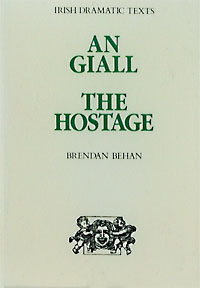
1. 'Ηταν 18 Νοέμβρη
Ήταν 18 Νοέμβρη
πέρα στο Μακρούν μπροστά
φτάσαν ταχτικοί χακένιοι
με τα μεταγωγικά
Τα παιδιά τούς καρτερούσαν
του στρατού λαΐκού
και ξμε τις χειροβομβίδες
τούς εκάμαν τ'αλατιού
2. Το γελαστό παιδί
Ήταν πρωί του Αυγούστου κοντά στη ροδαυγή
βγήκα να πάρω αέρα στην ανθισμένη γη
βλέπω μια κόρη κλαίει σπαραχτικά θρηνεί
σπάσε καρδιά μου εχάθη το γελαστό παιδί
Είχεν αντρεία και θάρρος και αιώνια θα θρηνώ
το πηδηχτό του βήμα το γέλιο το γλυκό
ανάθεμα την ώρα κατάρα τη στιγμή
σκοτώσαν οι εχθροί μας το γελαστό παιδί
Μον' να 'ταν σκοτωμένο στου αρχηγού το πλάι
και μόνον από βόλι Εγγλέζου να 'χε πάει
κι από απεργία πείνας μέσα στη φυλακή
θα 'ταν τιμή μου που 'χασα το γελαστό παιδί
Βασιλικιά μου αγάπη μ' αγάπη θα στο λέω
για το ό,τι έκανες αιώνια θα σε κλαίω
γιατί όλους τους εχθρούς μας θα ξέκανες εσύ
δόξα τιμή στ' αξέχαστο γελαστό παιδί
3. Δεν έχει η γη ο κόσμος θέση
Δεν έχει η γη κι ο κόσμος θέση σαν κι αυτή
ανάμεσα σε μας τους δυο.
Δεν έχει η γη κι ο κόσμος θέση σαν κι αυτή
Ακούσλα ταίρι μου χρυσό.
4. 'Ανοιξε λίγο το παράθυρο
Άνοιξε σιγά την πόρτα
Κλείσ' τη για να μην τραβάει
όλη τη ζωή μου χύνω δάκρυα, δάκρυα
το στόμα μου δεν ξέρει να γελάει
Άνοιξε λίγο το παράθυρο
Κι ασ' το φυρό για το Χριστό,
Έμπα και κάτσε κι ύστερα
θα σου το πω το μυστικό
Μόν' μια φορά σαν έπεσε η εικόνα
κι άφησε τη γριά τη βάβω μου ξερή
κει που 'λεγε παλιό ιρλανδέζικο τραγούδι
πως πούλησαν προδότες τον οδηγητή
Άνοιξε λίγο το παράθυρο
κι άσ' το φυρό για το Χριστό
Έμπα και κάτσε κι ύστερα
θα σου το πω το μυστικό
Από τους μπάσταρδους τους ξένους
κρύψε, καλή μου, το χάλι σου
εμείς λιοντάρι και λυκόρνιο
και ρόδο στο κεφάλι σου
Άνοιξε λίγο το παράθυρο
κι άσ' το φυρό για το Χριστό
Έμπα και κάτσε κι ύστερα
θα σου το πω το μυστικό
5. Δεν έχει θέση η γη
Δεν έχει θέση η Γη παρά για τη ζωή
δεν έχει θέση όπου κι αν πας.
δεν έχει θέση η Γη παρά για τη ζωή
σ' το λέω και νιώσ' το αν μ’ αγαπας.
Τη μάνα σου μην την πετροβολάς
όταν πεθάνει, αυτό θα σε πονάει
Τη μάνα σου μην την πετροβολάς
κάλλιο ο πατέρας σου πετριές ας φάει
6. Διαβάζεις την Αγία Γραφή
Διαβάζεις την Αγία Γραφή, χρυσές σελίδες.
Διαβάζεις λόγια ωραία που μιλάν για αγάπη.
Διαβάζεις και για τον Πλάτωνα, όλους τους σοφούς
που λεν για ελπίδα, για χαρά, για αγάπη, για ειρήνη.
Μα αυτά λέω σαν ανόητα τα νιώθει ο νους,
σα να λένε για λεπρούς ή για νεράιδες.
Αλλά το ξέρεις όταν άνθρωπο χρειαστείς,
πως σαν τον εαυτό σου εσέ δεν σ' αγαπάει κανείς.
Επάσχισα κι εγώ να γίνω κάποιος.
Στα δεκατρία εδούλεψα καλά στο τραμ,
μα κι αν δεν έγινα γιατρός, στρατιωτικός,
τον βασιλιά τον υπηρέτησα πιστά,
ποτέ στους χαλεπούς καιρούς δεν πρόδωσα.
Ούτε όταν οι Άγγλοι τα 'καναν σμπαράλια εδώ.
Κι όταν γίναμε γίναμε ανεξάρτητοι ήμουν νομιμόφρων,
μα σαν τον εαυτό σου εσέ δεν σ' αγαπάει κανείς.
Πράγματι τους μικρούς εμάς της μεσαίας τάξεως
μας φέρνουν γύρω σαν καφέδες σ' αγρυπνία,
οι υπάλληλοι μας έχουν σαν γαϊδούρια στη σειρά,
μας κοροϊδεύει ο όχλος όταν προσπαθούμε
να 'χουμε τρόπους, να μιλάμε καθαρεύουσα.
Έτσι ούτε σύλλογο έχουμε και είναι να μας κλαις.
Μα μόνο τούτο ξέρουμε καλά και εμείς,
πως σαν τον εαυτό σου εσέ δεν σ' αγαπάει κανείς.
7. Το Σεπτέμβριο θυμάμαι
Το Σεπτέμβριο θυμάμαι όταν άδειαζαν οι πάγκοι
κι έπαψ' ή βουή του κόσμου, πήγαν τα παιδιά για τσάι.
Άσε μας θεέ ψηλά, να θυμόμαστε τ' απλά
τώρα που έχουν πια πεθάνει
όλοι που μας αγαπάνε, λοχαγοί και βασιλιάδες.
Πέρα στην παλιά μας Κύπρο και στην Κένυα την καημένη
όλοι εκεί βασανισμένοι μαύροι κι άσπροι από τους άσπρους.
Και στα ξωτικά τα μέρη κι όπου ρίξουμε το μάτι
το κουδούνι του σχολείου στο μισό Μπέλφαστ σημαίνει
κι αχ, ή Αγγλία μας ή καημένη, λοχαγοί και βασιλιάδες.
Σκόνταψα σ' ένα βραχνά μου και στο πάρκο κει του Ουΐνσδορ,
τι θαρρείτε κει πώς ηύρα, περπατώντας στο σκοτάδι;
Μισοδαγκωμένο μήλο και το πιο αστείο απ’ όλα
χαραγμένα πέντε δόντια
πέντε δόντια από παιδάκι, λοχαγοί και βασιλιάδες.
8. Θα σου δώσω ένα τόπι χρυσό
Θα σου δώσω ένα τόπι χρυσό
για να παίζεις στο χολ με παιδιά
αν με πάρεις, με πάρεις, με πάρεις
να 'μαι ταίρι σου πια.
Θα σου δώσω τα κλειδιά της καρδιάς μου
και τα χρήματα όσα κι αν έχω,
αν με πάρεις, μ πάρεις, με πάρεις
να 'μαι ταίρι σου πια.
Θα σου δώσω ρολόι με καδένα
να το δείχνεις κρυφά στα παιδιά
αν με πάρεις, με πάρεις, με πάρεις
να 'μαι ταίρι σου πια.
Θ σου δώσω χρυσάφι, χρυσάφι
να γεμίζεις τις χούφτες φλωριά
αν με πάρεις, με πάρεις, με πάρεις
ταίρι να 'μαστε πια
Θα σου φτιάξω μια πίτα με κρέας
θα σε κρύψω ως να φύγουν οι μάγκες
αν με πάρεις, με πάριες με πάρεις
ταίρι να 'μαστε πια.
Όμως πρώτα να δούμε αν ταιριάζουμε,
αν ταιριάζουμε οι δυο μας σωστά
9. Θα σου στείλω μάνα
Θα σου στείλω μάνα
ένα κουτί σπίρτα
από την Ιρλανδία
'Ενας τοκογλύφος
σκούζει: “Φτάσε χάρε, πάρε με
πάρε με, ένας 'Αγγλος
μου 'φαγε τα βόλια.”
10. Θες να ζεις απ' τις γυναίκες
- Θες να ζεις απ'τις γυναίκες
και ποτέ να μη δουλεύσεις;
νά 'σαι σωματέμπορος;
- Ναί, η μαύρη αλήθεια, θέλω.
- Θες το στέκι σου στο Σόχο
νά 'σαι Γουέστ Εντ νταβατζής;
- Καλοπέραση γουστάρω
Και γι'αυτό να γίνω ευτύς.
- Tα πορνόφυλλα διαβάζεις
Και γι'ανθρώπους σαν κι αυτούς ;
Που λέν' γι'ασέλγειες και για φόνους.
Δε μου λες, μου το δανείζεις ;
- Nαί, μ'αρέσει νταβατζής
Θα βαλθώ με τα σωστά μου
να πιάσω εγγλέζικο παρά
που'χει πέραση παντού.
Η γεια σου, ο Θεός μαζί σου
Πρωί βράδυ προσευχή
Και στέλνε στη μητέρα σου
ένα κάλπικο φλουρί.
11. Δεν παίρνει εδώ κανείς
Δεν παίρνει εδώ κανείς
τη θέση της μητέρας
για να του δώσει
ένα φιλί γλυκό για μένα.
12. Είμαι 'Αγγλος νιος και τυχερός
Είμ' Άγγλος νιος και τυχερός
θέλω τον βασιλιά
κι ας ακριβαίνουν τον καπνό,
φτάνει που με ρωτάν.
Την γριά Αγγλία την αγαπώ
από δύση σ' ανατολή,
απ' τον Ιορδάνη ποταμό
ως του Άτλα την ακτή.
Την γριά Αγγλία όπου κι αν βρεθώ
την έχω στην καρδιά,
μόνο αυτούς τους νέγρους
να έδιωχνα έξω με μια κλωτσιά.
13. Λατρεύω το Σωτήρα μου
Λατρεύω το Σωτήρα μου
τον Πλάστη μου αγαπώ,
στην κόλαση είν' η θέση
για τον οξαποδώ.
Και λέω στον Mr Dulles
παρακαλώ πολύ
για μια μεγάλη χάρη,
αχ όχι αστεία με το φεγγάρι.
Είμαι μικρούλα Χριστιανή
στα πόδια μου άσπρο χιόνι,
καθημερνά προσεύχομαι
για της Λαμπρής τ' αρνί.
Φωνάζω στον McMillan
που μοιάζει μανιτάρι
για μια μεγάλη χάρη,
αχ όχι αστεία με το φεγγάρι
14. Της κόλασης καμπάνες
Της κόλασης καμπάνες
για σας, όχι για μένα
Ω θάνατέ μου έλα
πού είν’ η ελπίδα γκλιν γκλαν γκλιν
πού να ναι τάφε η νίκη σου
Αν δεις τον εργολάβο,
αν δεις τον οδηγό
να πιείτε μια απ’ ότι έμεινε
τώρα σας χαιρετώ
15. Ποιος δε μιλά για τη λαμπρή
Ποιος δε μιλά για τη λαμπρή
γιορτή ξανανιωμού,
πάν τα παιδιά στον πόλεμο
και παν του σκοτωμού.
Με θάρρος οι τρανές καρδιές
έπιασαν τα στενά,
ψηλά η σημαία ανέμιζε
η αντάρτισσα μπροστά.
Δέκα χιλιάδες φτάσανε
χακένιοι ταxτικοί
για να σκοτώσουν τα παιδιά
μα μείναν εδ' εκεί.
Με πολυβόλα κι άρματα
κανόνια τους σωρό,
κανένας τους δε γύρισε,
δε φταίμε εμείς για αυτό.
Ένας με δέκα, ημέρες εξ,
κρατήσαμε γερά
και δεν περάσαν τις γραμμές,
μ' όλα τους τα πυρά.
Μας ρίξαν και φαρμακερά
αέρια και καπνούς,
μας κάψαν την πρωτεύουσα
ωσάν τους Γερμανούς.
Σκοτώσαν τους ηγέτες μας
χωρίς απολογιά τους,
γυναίκες μας, μικρά παιδιά
στα γόνατα μπροστά τους.
Τους τάφους άνοιγαν κρυφά
και θάβαν τους νεκρούς,
δεν πιάσαν ούτε σκότωσαν
αντάρτες μας πιστούς.
Ποιος δε μιλά για τη λαμπρή
γιορτή ξανανιωμού,
πάν τα παιδιά στον πόλεμο
και παν του σκοτωμού.
inviata da Gian Piero Testa & CCG/AWS Staff - 4/2/2009 - 22:01
Lingua: Inglese
Alcune parti del testo inglese di The Hostage reperite da mikis-theodorakis.net
Some parts from the English text of The Hostage reproduced from mikis-theodorakis.net
Κάποια μέρη από το Αγγλικό πρωτότυπο του 'Ενας 'Ομηρος, από mikis-theodorakis.net
Some parts from the English text of The Hostage reproduced from mikis-theodorakis.net
Κάποια μέρη από το Αγγλικό πρωτότυπο του 'Ενας 'Ομηρος, από mikis-theodorakis.net
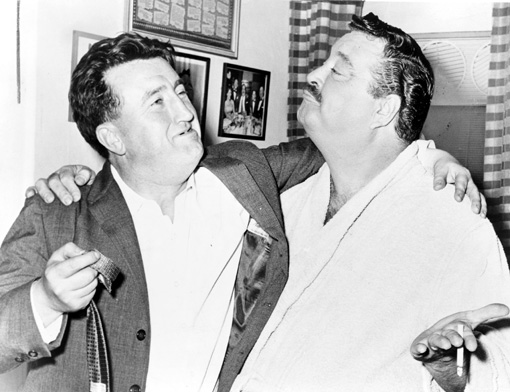
Brendan Behan e Jackie Gleason.
Nota: Viene indicata la corrispondenza con la relativa parte della traduzione greca
Note: The corresponding part of the Greek translation is indicated.
Note: The corresponding part of the Greek translation is indicated.
"When Leonidas Trivizas decided to stage Brendan Behan's "The Hostage", which had been well translated into Greek by Vassilis Rotas in 1962, it was regarded as an important cultural event in Athens. The play itself was seen not only as a daring piece of modern theatre but as a play with a message which had obvious parallels for Greek audiences. The Cyprus issue was headline news in the Greek press and the role of the British was seen by most Greeks as one of oppressive colonial interference in another country's internal affairs, an interference which had helped cause the current hostilities. The American involvement in both Cyprus and mainland Greek politics was regarded as a continuation of the same sort of bullying, big-power politics. Behan's portrayal of his country struggles for independence struck an immediate chord with Greek audiences and Theodorakis's setting of the "Smiling Boy" (later used as the theme song for the film "Z") was soon adopted by young Greeks as a protest song against NATO involvement in Greece. Both the "Smiling Boy" and "Open the Window" from the "Hostage" cycle were immediately banned on Greek radio for their "political" associations.
The Irish setting and the wry humour of "The Hostage" caused Theodorakis to compose his score in a style very different from the "Dead Brother" and indeed from any other of his song cycles. There is a light, jaunty quality about the music which is emphasised by the original orchestration of the songs for harpsichord, bouzouki and tympanum. Some of the melodies suggest English folksongs, particularly the three pieces with a 2/4 time signature composed in Theodorakis's favourite major keys of D and F. (...)
The songs of a cycle such as "The Hostage" are thought of as a whole tied together by melodic and rhythmic devices, tonality, orchestration and voice as well as by their lyrics and mood." -
Gail Holst.
“Quando Leonidas Trivizàs decise di mettere in scena L'Ostaggio di Brendan Began, che era stato ben tradotto in greco da Vasilis Rotas nel 1962, fu considerato un importante evento culturale a Atene. Il dramma in sé non era visto soltanto come una coraggiosa pièce di teatro moderno, ma anche come contenente un messaggio che aveva ovvie analogie per gli spettatori greci. La questione di Cipro era in prima pagina sulla stampa greca, e il ruolo della Gran Bretagna era considerato dalla maggior parte dei Greci come un'oppressiva ingerenza coloniale negli affari interni di un altro paese, un'ingerenza che aveva contribuito a creare le ostilità del presente. L'intervento americano sia nella politica della Grecia continentale, sia in quella di Cipro, era visto come l'estensione dello stesso tipo di prepotenza da superpotenza. Il ritratto che Behan fece delle lotte del suo paese per l'indipendenza toccò immediatamente le corde degli spettatori greci, e il Ragazzo che sorride, musicato da Theodorakis e poi usato per la colonna sonora del film Z – L'orgia del potere, fu adottato presto dai giovani greci come canzone di protesta contro l'attività della NATO in Grecia. Sia il Ragazzo che sorride che Apri la finestra, dal ciclo di canzoni dell' Ostaggio, furono immediatamente bandite dalla radio di stato greca per le loro connotazioni politiche.
L'ambientazione irlandese e l'amaro umorismo dell' Ostaggio spinsero Theodorakis a comporre la partitura con uno stile molto differente da ogni altro suo ciclo di canzoni. La musica ha un andamento leggero e vivace, sottolineato dall'orchestrazione originale delle canzoni per clavicembalo, bouzouki e timpano. Alcune delle melodie ricordano quelle di canzoni popolari inglesi, particolarmente i tre brani in 2/4 composti da Theodorakis nei suoi accordi preferiti, il re e il fa maggiore. (...)
Le canzoni di un ciclo come L'Ostaggio sono intese come un insieme legato da meccanismi melodici e ritmici, dalla tonalità, dall'orchestrazione, dalla voce, dai testi e dalla loro atmosfera.” - Gail Holst [trad. RV]
"In "The hostage", Brendan Behan deals with the Irish people’s struggle for freedom. This new Irish mythology seemed to me to be very closely related to ours. The questions about God, about existence, about loneliness, love and hate retain their fundamental significance in the human struggle for life and liberty. That applies to Northern Ireland just as much as to Greece. When in 1961 I put "The Hostage" to music, I didn’t want to compose typical Greek folk music; I wanted at least the musical form to correspond to the special atmosphere of the work." - Mikis Theodorakis.
On the Eighteenth Day of November
1. 'Ηταν 18 Νοέμβρη
1. 'Ηταν 18 Νοέμβρη
Just outside the town of Macroom.
The tans in their big Crossley tenders,
Came roaring along to their doom.
But the boys of the column were waiting
With hand grenades primed on the spot,
And the Irish Republican Army
Made shit of the whole mucking lot.
The Laughing Boy
2. Το γελαστό παιδί
2. Το γελαστό παιδί
It was on an August morning, all in the moring hours,
I went to take the warming air all in the month of flowers,
And there I saw a maiden and heard her mournful cry,
Oh, what will mend my broken heart, I’ve lost my Laughing Boy.
So strong, so wide, so brave he was, I’ll mourn his loss too sore
When thinking that we’ll hear the laugh or springing step no more.
Ah, curse the time, and sad the loss my heart to crucify,
Than an Irish son, with a rebel gun, shot down my Laughing Boy.
Oh, had he died by Pearse’s side, or in the G.P.O.,
Killed by an English bullet from the rifle of the foe,
Or forcibly fed while Ashe lay dead in the dungeons of Mountjoy,
I’d have cried with pride at the way he died, my own dear Laughing Boy.
My princely love, can ageless love do more than tell to you
Go raibh mile maith Agath, for all you tried to do,
For all you did and would have done, my enemies to destroy,
I’ll prize your name and guard your fame, my own dear Laughing Boy.
Open the Door Softly
4. 'Ανοιξε λίγο το παράθυρο
Open the door softly,
Shut it-keep out the draught,
For years and years, I’ve shed millions of tears,
And never but once have I laughed.
It was the time the holy picture fell,
And knocked me old Granny cold,
While she knitted and sang an old Irish song,
It was by traitors poor old Ulster was sold.
So open the window softly,
For Jaysus’ sake, hang an old latch,
Come in and lie down, and afterwards
You can ask me what’s the catch.
Before these foreign-born bastards, dear,
See you don’t let yourself down,
We’ll be the Lion and Unicorn,
My Rose unto your Crown.
I Remember in September
7. Το Σεπτέμβριο θυμάμαι
I remember in September,
When the final stumps were drawn,
And the shouts of crowds now silent
And the boys to tea were gone.
Let us, oh Lord above us,
Still remember simple things,
When all are dead who love us,
Oh the Captains and the Kings,
When all are dead who love us,
Oh the Captains and the Kings.
Far away in dear old Cyprus,
Or in Kenya’s dusty land,
Where all bear the white man’s burden
In many a strange land.
As we look across our shoulder
In West Belfast the school bell rings,
And we sigh for dear old England,
And the Captains and the Kings.
I wandered in a nightmare
All around Great Windsor Park,
And what did you think I found there
As I stumbled in the dark?
It was an apple half-bitten,
And sweetest of all things,
Five baby teeth had written
Of the Captains and the Kings.
inviata da CCG/AWS Staff - 4/2/2009 - 22:32
The Boy with the Sunlit Smile
2. Το γελαστό παιδί
2. Το γελαστό παιδί
In “Peoples' Music: The Struggles of the Greek People”, la seconda parte di questa Ένας όμηρος, quella intitolata “Το γελαστό παιδί “ (“The Laughing Boy”), viene dedicata da Theodorakis in nota a Grigorios Lambrakis, deputato della sinistra e pacifista greco ucciso dai fascisti a Salonicco nel 1963, e viene resa così in inglese:
THE BOY WITH THE SUNLIT SMILE
It was a morning in August when in the rose-pink dawn
The wind came out and met the flowering earth
I can see a crying girl; I can hear her heart-breaking dirge
O my splintered heart, I have lost the boy with the sunlit smile
He was manly and brave, and for years to come she’ll mourn the loss
Of his light skipping step and his honeyed, tender laugh
Anathema to the hour! A curse on that moment
When the fascists murdered the boy with the sunlit smile!
O, if only he'd been killed at his commander’s side
If only dead from an Englishman’s bullet
Or from a hunger-strike deep within a prison
It'd be an honor for me to lose the boy with the sunlit smile
My love crowned in death, of love will I speak to you
For all the things you've done, ages will I weep for you
Because all our enemies you'll have erased from your mind
Glory and honor to the unforgettable boy with the sunlit smile
My love crowned in death, of love will I speak to you
For all things you'vs been, ages will I weep for you
Because all our enemies you'll have erased with your heart
Glory and honor to that never-forgotten boy with the sunlit smile!
It was a morning in August when in the rose-pink dawn
The wind came out and met the flowering earth
I can see a crying girl; I can hear her heart-breaking dirge
O my splintered heart, I have lost the boy with the sunlit smile
He was manly and brave, and for years to come she’ll mourn the loss
Of his light skipping step and his honeyed, tender laugh
Anathema to the hour! A curse on that moment
When the fascists murdered the boy with the sunlit smile!
O, if only he'd been killed at his commander’s side
If only dead from an Englishman’s bullet
Or from a hunger-strike deep within a prison
It'd be an honor for me to lose the boy with the sunlit smile
My love crowned in death, of love will I speak to you
For all the things you've done, ages will I weep for you
Because all our enemies you'll have erased from your mind
Glory and honor to the unforgettable boy with the sunlit smile
My love crowned in death, of love will I speak to you
For all things you'vs been, ages will I weep for you
Because all our enemies you'll have erased with your heart
Glory and honor to that never-forgotten boy with the sunlit smile!
Alessandro - 25/2/2010 - 14:04
The Captains and the Kings
7. Το Σεπτέμβριο θυμάμαι
7. Το Σεπτέμβριο θυμάμαι
Nel disco di Brendan Behan "Brendan Behan Sings Irish Folksongs and Ballads", pubblicato da Spoken Arts negli anni 60 e poi ristampato da Musique du Monde nel 1997, c'è una canzone intitolata "The Captains and the Kings" il cui testo, reperito su Mudcat, corrisponde alla parte di Ένας όμηρος/"An Giall"/"The Hostage" indicata come "7) Το Σεπτέμβριο θυμάμαι" ("I Remember In September").
Il diverso titolo, "The Captains and the Kings", fa riferimento ad un passaggio del poema di Rudyard Kipling "Recessional" (1897).
THE CAPTAINS AND THE KINGS
I remember in September, when the final stumps were drawn,
And the shouts of crowds now silent when the boys to tea had gone.
Let us, oh Lord above us, remember simple things,
When all are dead who love us, Oh the Captains and the Kings,
When all are dead who love us, Oh the Captains and the Kings.
We have many goods for export, Christian ethics and old port
But our greatest boast is that the Anglo-Saxon is a sport
When the darts game they are finished, & the boys their game of rings
And the drafts and chess relinquished Oh the captains and the kings
And the drafts and chess relinquished Oh the captains and the kings
Far away in dear old Cyprus, or in Kenya's dusty land,
We bear the white man's burden in many a strange land.
As we look across our shoulder, in West Belfast the school bell rings,
And we sigh for dear old England, and the Captains and the Kings.
And we sigh for dear old England, and the Captains and the Kings.
In our dreams we see old Harrow, and we hear the crow's load caw
At the flower show our big marrow takes the prize from Evelyn Waugh
Cups of tea and some dry Sherry, vintage cars, these simple things
So let`s drink up and be merry, for the captains and the kings
So let`s drink up and be merry, for the captains and the kings
As I wandered in a nightmare all around Great Windsor Park,
Now what did you think I found there as I wandered in the dark?
It was an apple half-bitten, and sweetest of all things,
Five baby teeth had written of the Captains and the Kings.
Five baby teeth had written of the Captains and the Kings.
By the moon that shines above us in the misty morning light
Let us cease to run ourselves down and praise God that we are white
And better still are English, tea and toast and muffin rings
And old ladies with stern faces and the captains and the kings
And old ladies with stern faces and the captains and the kings
I remember in September, when the final stumps were drawn,
And the shouts of crowds now silent when the boys to tea had gone.
Let us, oh Lord above us, remember simple things,
When all are dead who love us, Oh the Captains and the Kings,
When all are dead who love us, Oh the Captains and the Kings.
We have many goods for export, Christian ethics and old port
But our greatest boast is that the Anglo-Saxon is a sport
When the darts game they are finished, & the boys their game of rings
And the drafts and chess relinquished Oh the captains and the kings
And the drafts and chess relinquished Oh the captains and the kings
Far away in dear old Cyprus, or in Kenya's dusty land,
We bear the white man's burden in many a strange land.
As we look across our shoulder, in West Belfast the school bell rings,
And we sigh for dear old England, and the Captains and the Kings.
And we sigh for dear old England, and the Captains and the Kings.
In our dreams we see old Harrow, and we hear the crow's load caw
At the flower show our big marrow takes the prize from Evelyn Waugh
Cups of tea and some dry Sherry, vintage cars, these simple things
So let`s drink up and be merry, for the captains and the kings
So let`s drink up and be merry, for the captains and the kings
As I wandered in a nightmare all around Great Windsor Park,
Now what did you think I found there as I wandered in the dark?
It was an apple half-bitten, and sweetest of all things,
Five baby teeth had written of the Captains and the Kings.
Five baby teeth had written of the Captains and the Kings.
By the moon that shines above us in the misty morning light
Let us cease to run ourselves down and praise God that we are white
And better still are English, tea and toast and muffin rings
And old ladies with stern faces and the captains and the kings
And old ladies with stern faces and the captains and the kings
Alessandro - 25/2/2010 - 12:01
Who Fears to Speak of Easter Week?
15. Ποιος δε μιλά για τη λαμπρή
15. Ποιος δε μιλά για τη λαμπρή
Invece la 15ma parte, quella intitolata “Ποιος δε μιλά για τη λαμπρή”, si trova nel disco di Theodorakis “Peoples' Music: The Struggles of the Greek People” (Folkways Record, 1970) con il titolo di “The Partisans” e dovrebbe essere un adattamento della canzone di Brendan Behan – sempre da “An Giall” - intitolata "Who fears to speak of Easter Week?” e dedicata all’”Easter Rising” (“Éirí Amach na Cásca”) del 1916, la più significativa rivolta degli irlandesi contro il dominio britannico, dopo quella del 1798.
La canzone è inclusa in "Brendan Behan Sings Irish Folksongs and Ballads", pubblicato da Spoken Arts negli anni 60 e poi ristampato da Musique du Monde nel 1997.
Su Irish Folksongs trovo il testo di una canzone così intitolata, ma non mi pare corrisponda a quello come cantato da Brendan Behan in persona qui o qui (con tanto di introduzione):
WHO FEARS TO SPEAK OF EASTER WEEK?
Who fears to speak of Easter Week?
Who dares its fate deplore?
The red gold flame of Eire's name
Confronts the world once more!
Oh! Irishmen, remember then,
And raise your heads with pride,
For great men and straight men
Have fought for you and died.
The spirit wave that came to save
The peerless Celtic soul,
From earthly stain of greed and gain
Had caught them in its roll;
Had swept them high to do or die,
To sound a trumpet call;
For true men though few men
To follow one and all.
Upon their shield a stainless field,
With virtues blazoned bright;
With Temperance and Purity
And Truth and Honour dight
So now they stand at God's Right Hand,
Who framed their dauntless clay,
Who taught them and brought them
The glory of today.
The storied page of this our age
Will save our land from shame
The ancient foe had boasted - ho!
That Irishmen were tame
They bought their souls for paltry doles,
And told the world of slaves
That lie men! shall die, men!
In Pearse and Plunkett's graves.
The brave who've gone to linger on
Beneath the tyrant's heel
We know they pray another day
With clash of clanging steel
Now from their cell their voices swell,
And loudly call on you
Then ask, men! the task, men!
That yet remains to do.
Who fears to speak of Easter Week?
Who dares its fate deplore?
The red gold flame of Eire's name
Confronts the world once more!
Oh! Irishmen, remember then,
And raise your heads with pride,
For great men and straight men
Have fought for you and died.
The spirit wave that came to save
The peerless Celtic soul,
From earthly stain of greed and gain
Had caught them in its roll;
Had swept them high to do or die,
To sound a trumpet call;
For true men though few men
To follow one and all.
Upon their shield a stainless field,
With virtues blazoned bright;
With Temperance and Purity
And Truth and Honour dight
So now they stand at God's Right Hand,
Who framed their dauntless clay,
Who taught them and brought them
The glory of today.
The storied page of this our age
Will save our land from shame
The ancient foe had boasted - ho!
That Irishmen were tame
They bought their souls for paltry doles,
And told the world of slaves
That lie men! shall die, men!
In Pearse and Plunkett's graves.
The brave who've gone to linger on
Beneath the tyrant's heel
We know they pray another day
With clash of clanging steel
Now from their cell their voices swell,
And loudly call on you
Then ask, men! the task, men!
That yet remains to do.
Invece sul libretto che accompagna “Peoples' Music: The Struggles of the Greek People” trovo il testo inglese di “The Partisans” di Mikis Theodorakis e Vasilis Rotas, che qui posso riportare grazie all’ottimo programmino FreeOCR:
THE PARTISANS
On every tongue now lies the tale of the rejuvenating Eastertide
And the boys are marching on to war, marching to the kill
The brave, the open-hearted, who fought for the alleys and made them theirs
Up there's a partisan, her hair like a flag raised on high before them
Ten thousand were slaughtered; the blood of angels soiled the earth
In hopes that some of our bodies would be among those bleeding there
Cannons and machine-guns and other toys of war in numberless numbers--
Could you ever think of blaming us for the act of resistance?
Ten against one--six days with all our strength we held out
Not one of them crossed the lines--while many were left for dead
Then there was smoke as they rained on us a mist of poison and gas
And with a most nazi-like glee they turned our capital to fire and cinders
They killed off the leaders we loved and did not allow them a word
Our women end children scraped their knees raw before them
They listened, not hearing, not caring, and than buried them as enemies
But not one of our loyal partisans could they catch or kill
Is there anyone left not telling the tale of the rejuvenating Eastertide?
The boys are still marching on to war, marching on to the kill
On every tongue now lies the tale of the rejuvenating Eastertide
And the boys are marching on to war, marching to the kill
The brave, the open-hearted, who fought for the alleys and made them theirs
Up there's a partisan, her hair like a flag raised on high before them
Ten thousand were slaughtered; the blood of angels soiled the earth
In hopes that some of our bodies would be among those bleeding there
Cannons and machine-guns and other toys of war in numberless numbers--
Could you ever think of blaming us for the act of resistance?
Ten against one--six days with all our strength we held out
Not one of them crossed the lines--while many were left for dead
Then there was smoke as they rained on us a mist of poison and gas
And with a most nazi-like glee they turned our capital to fire and cinders
They killed off the leaders we loved and did not allow them a word
Our women end children scraped their knees raw before them
They listened, not hearing, not caring, and than buried them as enemies
But not one of our loyal partisans could they catch or kill
Is there anyone left not telling the tale of the rejuvenating Eastertide?
The boys are still marching on to war, marching on to the kill
Alessandro - 25/2/2010 - 13:45
Lingua: Italiano

Gian Piero Testa.
Versione italiana integrale di Gian Piero Testa
[2006]
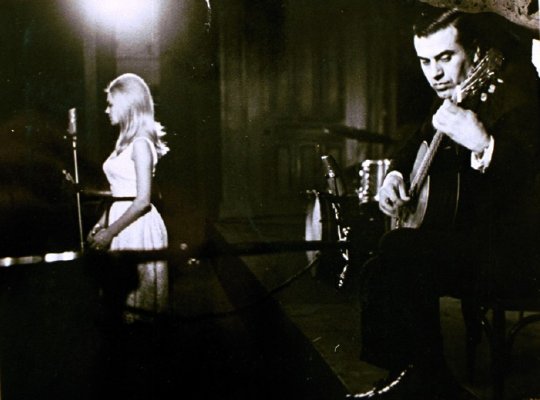
Il chitarrista classico Dimitris Fabas e la cantante Dora Yannakopoulos nel 1963, durante una delle prime interpretazioni di Ένας όμηρος.
Brendan Behan (Breandán Ó Beacháin)
UN OSTAGGIO
The Hostage - An Giall
Traduzione italiana: Gian Piero Testa
Musica: Mikis Theodorakis
UN OSTAGGIO
The Hostage - An Giall
Traduzione italiana: Gian Piero Testa
Musica: Mikis Theodorakis

1. Era il 18 novembre
Era il diciotto Novembre
là davanti a Macroom
giunsero truppe in divisa caki
con i loro autocarri.
Li aspettavano i ragazzi
dell'armata popolare
e colle bombe a mano
gliele suonarono di brutto.
2. Il ragazzo sorridente
Era un mattino d'Agosto, quasi albeggiava
uscii a prender aria sulla terra fiorita.
Vedo una ragazza, piange, disperatamente si duole
spezzati cuor mio, è morto il ragazzo sorridente.
Era valoroso, era coraggioso, per secoli rimpiangerò
il suo passo leggero, il suo dolce sorriso.
All'inferno l'ora, maledetto il momento
che i nostri nemici hanno ucciso il ragazzo sorridente.
Se solo l'avessero ucciso al fianco del suo comandante
e solo per una pallottola inglese ci fosse restato
o per uno sciopero della fame dentro la prigione
sarebbe un onore per me che non ho più il ragazzo sorridente.
Mio meraviglioso amore, con amore te lo dirò
per quello che tu hai fatto nei secoli ti piangerò
perché tutti i nostri nemici li avresti disfatti tu
gloria onore all'indimenticabile ragazzo sorridente.
3. Non ha la terra e il mondo un posto
Non ha la terra e il mondo un posto come questo
frammezzo a noi due.
Non ha la terra e il mondo un posto come questo,
Acusla, mia preziosa metà.
4. Apri un poco la finestra
Apri piano la porta
Chiudila che non si muova
è tutta la vita che verso lacrime, lacrime
la mia bocca non sa cosa sia una risata
Apri un poco la finestra
e lasciala accostata per Cristo.
Entra e siediti e poi
te lo dirò questo mistero.
Solo una volta ho riso, quando cascò l'icona
e fece secca la mia vecchia nonna
mentre cantava un vecchio canto irlandese
di certi traditori che vendettero il loro capo
Apri un poco la finestra
e lasciala accostata per Cristo.
Entra e siediti e poi
te lo dirò questo mistero.
Agli stranieri bastardi
nascondi, amica mia, la tua rovina
mettiti in testa che noi siamo un leone
un liocorno e una rosa
Apri un poco la finestra
e lasciala accostata per Cristo.
Entra e siediti e poi
te lo dirò questo mistero.
5. Non ha posto la terra
Non ha posto la Terra se non per la vita
non ha posto dovunque tu vada.
Non ha posto la Terra se non per la vita,
te lo dico, e lo devi sentire dentro, se mi vuoi bene.
Non prendere a sassate la tua mamma
quando morirà, potresti soffrirne
Non prendere a sassate la tua mamma
meglio che le buschi tuo padre.
6. Leggi nella Sacra Scrittura
Leggi nella Sacra Scrittura pagine d'oro.
Leggi belle parole che parlano di amore.
Leggi anche di Platone, di tutti i saggi
che parlano di speranza, di gioia, di amore, di pace.
Dico: ma queste cose la mente le sente come insensate,
come fossero destinate ai lebbrosi e alle fate.
Ma già lo sai: quando hai bisogno di qualcuno
come ti ami da te stesso non ti ama nessuno.
Mi esorti a diventare anch'io qualcuno.
In questi tredici anni ho lavorato bene sui tram,
ma sebbene non sia diventato medico militare
il re l'ho servito fedelmente,
mai l'ho tradito nei tempi grami.
Nemmeno quando gl' Inglesi hanno fatto qui quello sfracello.
E quando siamo diventati indipendenti io stavo nella legalità,
Ma come ti ami da te stesso non ti ama nessuno.
In realtà, noi che siamo piccoli, della classe media
ci portano qua e là come tazzine di caffè per stare svegli,
i nostri subordinati ci prendono per una risma di somari,
la canaglia ci prende in giro quando ci sforziamo
di avere bei modi, di parlare forbito.
Così non abbiamo nemmeno un club nostro e c'è da compiangerci.
Ciò nonostante lo sappiamo bene anche noi che
come ti ami da te stesso non ti ama nessuno.
7. Ricordo quel settembre
Ricordo quel Settembre quando si svuotarono i banchi
e cessò il brusìo della gente, i ragazzi andavano a prendere il tè.
Facci ricordare, Dio del cielo, le semplici cose
adesso che ormai son morti
tutti quelli che ci vogliono tanto bene, ufficiali e realisti.
Oltre la vecchia Cipro, e lo sventurato Kenya
là, dove tutti sono oppressi, i neri e i bianchi da altri bianchi.
oltre quei posti esotici e ovunque gettiamo lo sguardo,
la campana della scuola risuona in mezza Belfast
e povera nostra Inghilterra, poveri ufficiali e realisti.
Sono finito in uno dei miei incubi e nel parco là di Windsor
che volete che abbia trovato passeggiando là nel buio ?
Una mela sbocconcellata e, cosa tutta da ridere,
con il segno di cinque denti
cinque denti di un bimbetto, ufficiali e realisti.
8. Ti darò una pallina d'oro
Ti darò una pallina d'oro
per giocar nella hall coi bambini
se mi prendi mi prendi mi prendi
già mi sento la tua metà.
Ti darò le chiavi del mio cuore
e ricchezze quante ne ho
se mi prendi mi prendi mi prendi
già mi sento la tua metà.
Ti darò orologio e catena
per mostrarlo furtivo ai bambini
se mi prendi mi prendi mi prendi
già mi sento la tua metà.
Ti darò oro e poi oro
per riempirti di monete le palme
se mi prendi mi prendi mi prendi
già mi sento la tua metà.
Ti farò una focaccia di carne
con in giro i balordi, starai sotto chiave
se mi prendi mi prendi mi prendi
già mi sento la tua metà.
Ma vediamo prima se combaciamo
se tutti e due combaciamo proprio appuntino.
9. Ti spedirò, mamma
Ti spedirò, mamma
una scatola di fiammiferi
dall’ Irlanda.
Un usuraio
urla: “vieni vieni a prendermi
per piacere, un Inglese
mi ha mangiato le pallottole”.
10. Vuoi vivere sfruttando le donne
-Vuoi vivere sfruttando le donne
senza mai lavorare ?
essere un mercante di corpi ?
-Sì, è la cruda verità, lo voglio.
- Vuoi fare base a Soho,
fare il macrò nel West End ?
- Mi va di passarmela bene
e perciò mi farò molto disinvolto.
- Leggi giornali porno
e di gente di questa risma ?
- Che parlano di porcate e omicidi.
-Dimmi, me lo presti ?
- Certo, mi piace il macrò
sgomiterò con le mie arti
per prendere un parà inglese
che si intrufola dappertutto.
- Salute, che Dio t’accompagni,
fa attenzione sera e mattina
e alla tua mamma manda
una moneta taroccata.
11. Qui nessuno prende
Qui nessuno prende
il posto della mamma
su, dalle un bacio
un dolce bacio per me.
12. Sono inglese, giovane e fortunato
Sono Inglese, giovane e fortunato
sostengo il Re
e se vogliono aumentare il tabacco,
basta chiedermelo.
Amo la vecchia Inghilterra
da occidente a oriente,
dal fiume Giordano
fino alle sponde dell'Atlante.
La vecchia Inghilterra ovunque mi trovi
me la porto nel cuore,
solo, questi negri mi andrebbe
di sbatterli fuori con un calcio nel culo.
13. Adoro il mio Salvatore
Adoro il mio Salvatore
amo il mio Creatore
all'inferno è il posto
del Piè di Capro.
E dico a mister Dulles
ti prego tanto
fammi un gran favore
ehi ! niente scherzi con la luna.
Sono una piccola Cristiana
ai miei piedi c'è candida neve
tutti i giorni faccio voti
per l'Agnello di Pasqua.
Chiamo Mac Millan
che sembra proprio un fungo
fammi un gran favore
ehi! niente scherzi con la luna.
14. Le campane dell'inferno
Le campane dell’inferno
Per voi, mica per me.
O morte mia, vieni.
Dov’è la speranza, glin glan glin
Dov’è, tomba, la tua vittoria
Se vedi l’agente delle pompe funebri
se vedi l’autista
bevetene uno con quel che resta
adesso vi devo salutare.
15. Chi non parla della Pasqua
Chi non parla della Pasqua, festa di rigenerazione
vanno i ragazzi alla guerra e vanno a farsi ammazzare.
Con coraggio quei magnanimi hanno preso i passaggi
davanti in alto garriva la bandiera della ribellione.
Giunsero diecimila fanti in divisa kaki
per uccidere i ragazzi, ma si fermarono lì.
Con mitragliatrici e tanks, e cannoni a bizzeffe
nessuno di loro ritornò, ma non è nostra la colpa.
Uno contro dieci, così per giorni tenemmo duro
e non passarono le linee, con tutte le armi che avevano.
Ci tirarono gas velenosi e fumogeni
ci bruciarono la capitale proprio come i Tedeschi.
Ammazzarono i nostri capi senza sentire le loro ragioni,
le nostre donne, i bambini inginocchiati davanti a loro.
Di nascosto scavarono fosse e seppellirono i morti,
non presero e non uccisero ribelli, ma semplici fedeli.
Chi non parla della Pasqua, festa di rigenerazione
vanno i ragazzi alla guerra e vanno a farsi ammazzare.
inviata da Gian Piero Testa & CCG/AWS Staff - 5/2/2009 - 02:10
Lingua: Italiano
Il ragazzo che sorride, la "cover" italiana di Albano di Ήταν 18 Νοέμβρη e Το γελαστό παιδί.
Nel 1967 la RAI apre uno sguardo sul mondo giovanile con una trasmissione giornalistica che, ricalcando il modello del più famoso "TV7", si occupa dei problemi della nuova generazione raccogliendo interesse e consensi. "Giovani", questo il titolo della rubrica curata da Andrea Barbato e Gian Paolo Cresci, l'anno successivo allarga i suoi orizzonti e diventa "Europa Giovani".
Mentre la sigla del primo ciclo fu la celebre "Un mondo d'amore" di Gianni Morandi, la sigla di "Europa Giovani" fu affidata all'emergente Al Bano, che si servì di un tema del compositore greco Mikis Theodorakis, famoso per la colonna sonora di "Zorba il Greco" e per il suo impegno politico contro il regime dei Colonnelli.
La voce potente e intonata di Al Bano dà il meglio di sé in questa ballata che ricalca atmosfere di folklore mediterraneo, facendo volentieri dimenticare qualche ingenuità del testo ("il mondo di domani confini non avrà, ed una mano bianca la nera stringerà"). Il 45 giri ottiene un discreto successo, e presenta una facciata B ("Musica", scritta dallo stesso Al Bano con Pallavicini) che sorprende per l'originalità della costruzione musicale: una romanza, più che una canzone, nulla da invidiare ai successi che trent'anni più tardi canterà Andrea Bocelli.
Nel 1967 la RAI apre uno sguardo sul mondo giovanile con una trasmissione giornalistica che, ricalcando il modello del più famoso "TV7", si occupa dei problemi della nuova generazione raccogliendo interesse e consensi. "Giovani", questo il titolo della rubrica curata da Andrea Barbato e Gian Paolo Cresci, l'anno successivo allarga i suoi orizzonti e diventa "Europa Giovani".
Mentre la sigla del primo ciclo fu la celebre "Un mondo d'amore" di Gianni Morandi, la sigla di "Europa Giovani" fu affidata all'emergente Al Bano, che si servì di un tema del compositore greco Mikis Theodorakis, famoso per la colonna sonora di "Zorba il Greco" e per il suo impegno politico contro il regime dei Colonnelli.
La voce potente e intonata di Al Bano dà il meglio di sé in questa ballata che ricalca atmosfere di folklore mediterraneo, facendo volentieri dimenticare qualche ingenuità del testo ("il mondo di domani confini non avrà, ed una mano bianca la nera stringerà"). Il 45 giri ottiene un discreto successo, e presenta una facciata B ("Musica", scritta dallo stesso Al Bano con Pallavicini) che sorprende per l'originalità della costruzione musicale: una romanza, più che una canzone, nulla da invidiare ai successi che trent'anni più tardi canterà Andrea Bocelli.
Il diciotto di novembre
di un anno che non so
anche un passero da un ramo
per paura se ne andò
venne buio all'improvviso
e la vita sua finì
il ragazzo che sorride
lo chiamavano così.
Ragazzo che sorridi,
non avverrà mai più
che resti senza sole
la nostra gioventù
il mondo di domani
confini non avrà
ed una mano bianca
la nera stringerà.
Spezzati cuore mio
ma solo per amore
spezzati cuore mio
ma solo per pietà
fratello abbracciami
chiunque sia abbracciami
se sete un giorno avrai
la mia acqua ti darò.
Spezzati cuore mio
ma solo per amore
spezzati cuore mio
ma solo per pietà
fratello abbracciami
chiunque sia abbracciami
se sete un giorno
avrai la mia acqua ti darò.
Il diciotto di novembre
di un anno che verrà
anche il passero sul ramo
il suo sole prenderà.
di un anno che non so
anche un passero da un ramo
per paura se ne andò
venne buio all'improvviso
e la vita sua finì
il ragazzo che sorride
lo chiamavano così.
Ragazzo che sorridi,
non avverrà mai più
che resti senza sole
la nostra gioventù
il mondo di domani
confini non avrà
ed una mano bianca
la nera stringerà.
Spezzati cuore mio
ma solo per amore
spezzati cuore mio
ma solo per pietà
fratello abbracciami
chiunque sia abbracciami
se sete un giorno avrai
la mia acqua ti darò.
Spezzati cuore mio
ma solo per amore
spezzati cuore mio
ma solo per pietà
fratello abbracciami
chiunque sia abbracciami
se sete un giorno
avrai la mia acqua ti darò.
Il diciotto di novembre
di un anno che verrà
anche il passero sul ramo
il suo sole prenderà.
inviata da CCG/AWS Staff - 5/2/2009 - 02:28
In base all'edizione inglese di Wikipedia, alla voce Brendan Behan, quest'ultimo avrebbe scritto The Laughing Boy all'età di tredici anni in forma di lamento ("complaint") per la morte di Michael Collins. Il patriota irlandese era stato ucciso durante la guerra civile irlandese, il 22 agosto 1922, pochi mesi prima della nascita di Brendan Behan (9 febbraio 1923); era amico personale della madre di Behan, Kathleen, e Laughing Boy era il soprannome che costei dava a Collins.
CCG/AWS Staff - 6/2/2009 - 15:14
Una delle più tipiche cose del sottoscritto: quando già il "termine" di qualcosa è stato annunciato in pompa magna (in questo caso: la sezione dedicata a Theodorakis), ci si accorge che una pagina era stata dimenticata. Un vero classico. Rimediamo con questa nuova versione della pagina dedicata all' "Ostaggio", rimessa interamente in sesto e razionalizzata dopo le sue già parecchie stratificazioni.
Riccardo Venturi - Ελληνικό Τμήμα των ΑΠΤ - 21/6/2012 - 12:18
Lingua: Finlandese
Traduzione finlandese / Finnish translation / Traduction finnoise / Μετέφρασε στα φινλανδικά / Suomennos: Pentti Saaritsa & Jussi Korhonen
Audio link to the song performed by Arja Saijonmaa and The Mikis Theodorakis Orchestra on their 1972 album Arja Saijonmaa & Mikis Theodorakis:
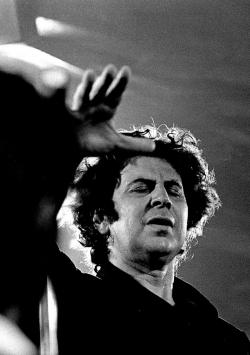
Audio link to the song performed by Arja Saijonmaa and The Mikis Theodorakis Orchestra on their 1972 album Arja Saijonmaa & Mikis Theodorakis:

1. 18. MARRASKUUTA
Marraskuun kahdeksastoista
pienen kylän laitamaan
hallituksen joukot vyöryi
telaketjuautoillaan.
Nuori kansanarmeijamme
nousi niitä torjumaan.
Kranaateilla kömpelöillä
musersi ne kokonaan.
2. NAURAVA POIKA
Aamulla elokuun, kun päivä jo ruskollaan
sai kukat hehkumaan, niityn poikki vaelsin.
Itkevän tytön näin, valittavan murheissaan:
Ei palaa koskaan poika, hilpeä naurusuu.
Peloton oli hän, en voi häntä unohtaa,
ylpeää käyntiään, en kirkasta nauruaan.
Sen päivän kiroan ja sen hetken kiroan,
jona ne rosvot tappoivat nuorukaisen sen.
Mikseivät surmanneet ne fasistit meitäkin
vierelle johtajamme, yhteiseen rintamaan?
Vain nälkälakon teille selleissä vankilan.
Nauravaa poikaa silti takaisin emme saa.
Rakastin häntä niin, en voi koskaan unohtaa,
miten hän uhrautui puolesta kaikkien.
Niin turhaan vihollisemme syytävät luotejaan.
Nauravan pojan kaikki muistavat ainiaan.
Marraskuun kahdeksastoista
pienen kylän laitamaan
hallituksen joukot vyöryi
telaketjuautoillaan.
Nuori kansanarmeijamme
nousi niitä torjumaan.
Kranaateilla kömpelöillä
musersi ne kokonaan.
2. NAURAVA POIKA
Aamulla elokuun, kun päivä jo ruskollaan
sai kukat hehkumaan, niityn poikki vaelsin.
Itkevän tytön näin, valittavan murheissaan:
Ei palaa koskaan poika, hilpeä naurusuu.
Peloton oli hän, en voi häntä unohtaa,
ylpeää käyntiään, en kirkasta nauruaan.
Sen päivän kiroan ja sen hetken kiroan,
jona ne rosvot tappoivat nuorukaisen sen.
Mikseivät surmanneet ne fasistit meitäkin
vierelle johtajamme, yhteiseen rintamaan?
Vain nälkälakon teille selleissä vankilan.
Nauravaa poikaa silti takaisin emme saa.
Rakastin häntä niin, en voi koskaan unohtaa,
miten hän uhrautui puolesta kaikkien.
Niin turhaan vihollisemme syytävät luotejaan.
Nauravan pojan kaikki muistavat ainiaan.
inviata da Juha Rämö - 21/6/2020 - 23:24
×
![]()

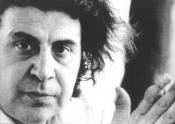

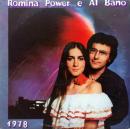
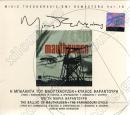

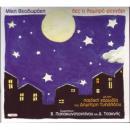
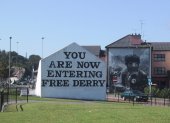
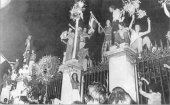
[1962]
An Giall/The Hostage
Στίχοι: Brendan Behan (Breandán Ó Beacháin) [1958]
Mετάφραση : Βασίλης Ρώτας
Μουσική: Μίκης Θεοδωράκης
Πρώτη εκτέλεση: Μίκης Θεοδωράκης
Ολόκληρες ερμενείες: Μίκης Θεοδωράκης (1962), Μαρία Φαραντούρη (1972)
Testi di Brendan Behan (Breandán ó Beacháin)
Traduzione greca di Vasilis Rotas
Musica di Mikis Theodorakis
Prima esecuzione del “Ragazzo sorridente”: Dora Yannakopoulou
Interpretazioni complete: Mikis Theodorakis (1962), Maria Farandouri (1972).
Brendan Behan nasce a Dublino nel 1923. Viene avviato al mestiere paterno di imbianchino. Ancor ragazzino aderisce all’I.R.A. A quindici anni, per un trasporto di bombe a Liverpool, sconta un anno e mezzo in riformatorio. Due gendarmi inglesi uccidono poi il suo miglior amico, un comandante del movimento. Lui uccide i due gendarmi e passa 14 anni in carcere, liberato dall’amnistia del 1946. Gli Inglesi lo considerano un pericolo pubblico. Va a Parigi a fare il suo vecchio mestiere. Scrive su giornali francesi a sostegno della causa irlandese. Dal 1954 scrive opere teatrali e romanzi che rispecchiano le sue esperienze di vita. Nel 1958 The Hostage è pubblicato in lingua irlandese (An Giall) a Dublino e subito dopo in inglese a Londra. Le sue opere sono vietate nell’ Ulster, ma hanno successo in Inghilterra e negli U.S.A. Scrive altri romanzi. Muore alcolizzato nel 1964.
Trama di “Un ostaggio”. Un giovane soldato inglese è tenuto in ostaggio dentro un bordello di Dublino per essere scambiato con un combattente dell’ IRA prigioniero a Belfast. Si innamora di una Irlandese, cameriera del bordello; ma la sua morte per mano dei ribelli pone fine a tutto.
L’opera viene rappresentata in Grecia nell’ Aprile del 1962 al teatro Κυκικό Θέατρο di Leonidas Trivizàs, con le musiche di Mikis Theodoràkis sulla traduzione di Vasìlis Rotas.
Vasìlis Rotas (Hiliomοdi, Korinthìas , lo stesso paese della Farandoùri , 1889 - Atene 1977) Scrittore teatrale, critico e fondatore del “teatro popolare” in Grecia. Poeta e traduttore di tutto Shakespeare. Studiò lettere all’Università di Atene e, dal 1906, arti sceniche presso la scuola teatrale dell’ Odeon di Atene . Combattè nelle guerre balcaniche e nella Prima Guerra Mondiale, e fu prigioniero dei Tedeschi. Poi ancora in guerra nella sciagurata spedizione anatolica. Come esperto militare, col grado di tenete colonnello, prestò servizio nell’ambasciata greca di Berlino. Lasciato finalmente l’esercito, si dedicò al teatro. Nel 1930 fondò il Λαϊκὸ Θέατρο Αθηνῶν, chiuso sette anni dopo dalla dittatura di Metaxàs. Durante l’occupazione fondò il Θεατρικό Σπουδαστήριο e servì la Resistenza nelle file dell’ EAM. Dopo la guerra si dedicò alle traduzioni (Schiller, Aristofane, Tirso de Molina e, soprattutto, Shakespeare) , e all’attività pubblicistica e teatrale. Lascia una nutrita produzione poetica, teatrale e di contributi critici. (Contributo e traduzione di Gian Piero Testa).
"The Hostage" received mixed reviews upon its debut, but as Littlewood’s Theater Workshop became increasingly well-known and respected, interest in the original production increased. The work has subsequently become one of the pillars upon which Behan’s reputation rests, and the original Littlewood production has since become recognized as evidence of the Theater Workshop’s important role in Postwar British theater.
The play’s structure is loose and some of the dialogue comes straight out of on-the-spot improvisations, but the basic plot revolves around the IRA’s kidnaping of a British soldier. The IRA plans to use the hostage as a bargaining chip for the release of an IRA prisoner who is due to be executed in Belfast the following morning. The British soldier is held prisoner in a rough-and-ready Dublin lodging house that also functions as a brothel, and while he is held there, the prisoner’s presence causes much discussion about past and present Irish nationalism and Britain’s involvement in colonial affairs in general.
The play is written in a non-realist style; characters frequently burst into song and sometimes into song-and-dance routines, and Behan consistently tries to undercut seriousness with humor. Littlewood tried to act and direct her plays in a way that would break down the ‘‘fourth wall’’ between actors and audience. It is a key text of the Absurdist theater movement, a movement that influenced later generations of playwrights such as Tom Stoppard and Harold Pinter. The play is especially important because it represents the intersection of British and Irish theater that occurred prior to the escalation of hostilities in Northern Ireland." - enotes.
Scríobh an Beachánach an dráma seo le spreagadh agus tacaíocht ó Ghael Linn, go háirithe ó fhear darbh ainm Riobard Mac Góráin. Bhíodh Mac Góráin ina eagarthóir ar Comhar agus d'fhoilsigh sé cuid mhaith de shaothar Gaeilge an Bheachánaigh san iris lena linn, chomh maith le bheith ina dhlúthchara óil leis.
Bhí an dráma le bheith réitithe do shéasúir drámaíochta an fhómhair i 1957, ach ní raibh ag éirí leis an mBeachánach bailchríoch a chur ar an script. Cuireadh go dtí an Spáinn é le deontas ó Ghael Linn chun saoire a chaitheamh agus an dráma a chríochnú. Chríochnaigh sé gníomh eile thall, ach bhí an chuid dheireanach fós le scríobh aige fiú nuair a bhí na cleachtaí foirmiúla á dtosú. Ach d'éirigh leis an snas deiridh a chur air in am don chéad léiriú.
Cuireadh an dráma ar stáitse an chéad uair ar 16 Meitheamh 1958, nó Lá Bloom, in Amharclann an Damer. Ba é Proinsias Mac Diarmada a bhí mar léiritheoir agus Eibhlín Ní Chathail Riabhaigh mar léiritheoir cúnta aige. B'aisteach an tús é don dráma, nuair a chuaigh clár leictreachais na hamharclainne trí thine ar an gcéad oíche oscailte, mar nach raibh sé in ann do shoilsiú trom amharclainne. Is ar éigean gur leanadh leis an seó mar gheall ar an eachtra seo.
Bhí an halla lán go doras gach oíche de thréimhse an chéad léirithe go léir agus b'éigean é a chur ar siúl ar feadh seachtain eile chun an t-éileamh a bhí air a shásamh.
Níor cuireadh an leagan bunaidh seo den dráma ar stáitse arís go dtí 1979, áfach, nuair a cuireadh ar siúl in Amharclann an Damer arís é. Cuireadh ar siúl é an uair sin le tacaíocht ó Bhord na Gaeilge agus ón gComhairle Ealaíon.
Gabhann poblachtánaigh saighdiúir Sasanach mar ghiall agus bítear ag bagairt air go gcuirfear chun báis é, mura scaoilfear príosúnach poblachtánach saor i mBéal Feirste. - ga.wikipedia.